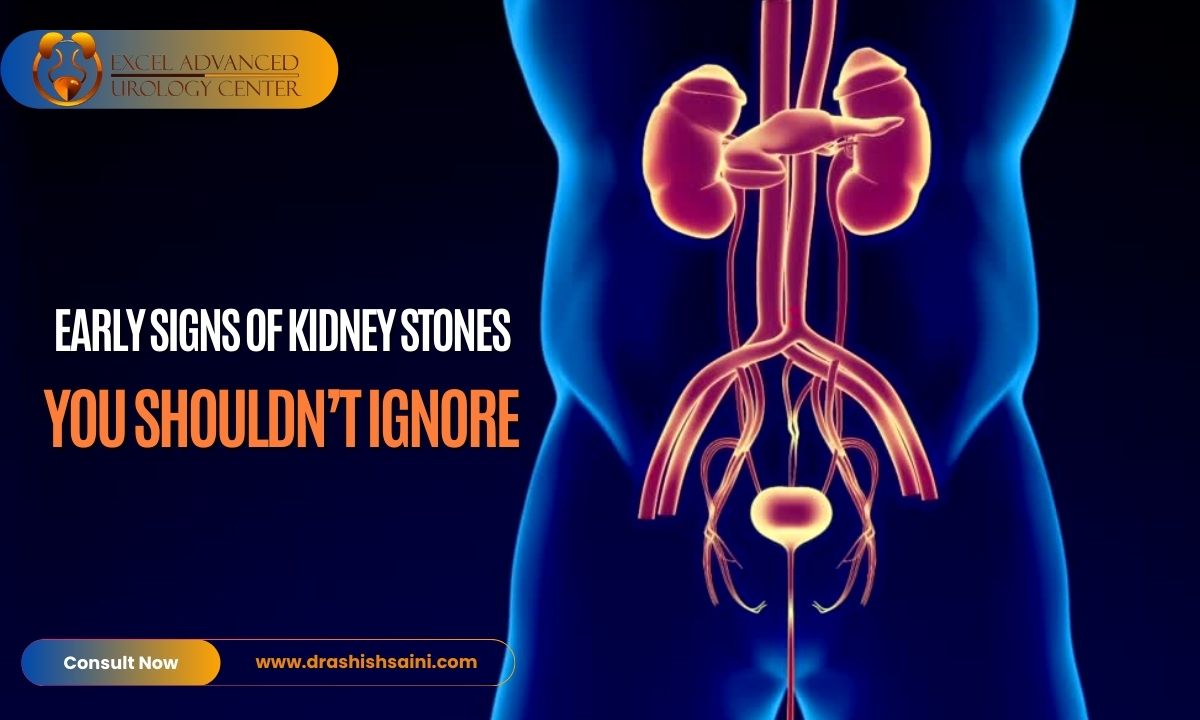

The journey to parenthood is a cherished aspiration for many couples, but for some, the path is strewn with challenges, particularly when it comes to male infertility. The good news is that there are practical and effective strategies that can address and improve male infertility, ultimately boosting the chances of conceiving. In this comprehensive blog, we will delve into various methods, lifestyle adjustments, and key insights to empower couples on their quest to overcome male infertility and realize their dreams of parenthood.
Understanding Male Infertility: A Closer Look
Before we dive into the solutions, let's establish a clear understanding of male infertility. It refers to the inability to achieve a successful pregnancy due to factors that influence sperm quality, quantity, or function. These factors encompass low sperm count, poor sperm motility, and abnormal sperm morphology. However, with the right knowledge and approach, these obstacles can be tackled head-on.
What is Male Infertility?
Male infertility is a condition in which a man is unable to produce enough sperm or sperm that are healthy enough to fertilize an egg. This can be caused by a number of factors, including:
- Low sperm count: This is the most common cause of male infertility. A normal sperm count is considered to be at least 15 million sperm per millilitre of semen.
- Poor sperm motility: This means that the sperm are not moving well enough to reach the egg.
- Abnormal sperm morphology: This means that the sperm are not shaped normally.
- Blockages in the reproductive tract: These can prevent the sperm from reaching the egg.
- Hormonal imbalances: These can affect sperm production.
- Medical conditions: Some medical conditions, such as diabetes and varicocele, can also cause male infertility
What are the Causes of Male Infertility?
The causes of male infertility can be divided into two categories:
- Congenital: These are conditions that are present from birth, such as Klinefelter syndrome.
- Acquired: These are conditions that develop over time, such as varicocele or infections.
How is Male Infertility Diagnosed?
A diagnosis of male infertility is usually made after a semen analysis. This is a test that measures the number, motility, and morphology of the sperm. If the semen analysis is abnormal, the doctor may order further tests to determine the cause of the infertility.
What are the Treatments for Male Infertility?
Male infertility treatment depends on the underlying cause. In some cases, there is no treatment available. However, there are a number of treatments that can improve the chances of conception, including:
- Lifestyle changes: These include quitting smoking, losing weight, and eating a healthy diet.
- Medication: There are a number of medications that can improve sperm production, such as clomiphene citrate and human chorionic gonadotropin (hCG).
- Surgery: In some cases, surgery may be necessary to correct a blockage or remove a varicocele.
- In vitro fertilization (IVF): This is a procedure in which the eggs are fertilized with sperm in a laboratory. IVF is a successful treatment for male infertility in about 50% of cases.
How to Improve Male Infertility: A Multi-Pronged Approach
- Nourishing Fertility with Nutrition - The role of nutrition in enhancing male fertility is pivotal. Opt for a balanced diet enriched with antioxidants, vitamins, and minerals. Embrace a spectrum of fruits, vegetables, whole grains, lean proteins, and nuts. These choices lay the groundwork for improved sperm quality and overall well-being.
- Exercise: A Cornerstone of Reproductive Health - Regular physical activity contributes not just to physical health, but also to fertility. Engage in moderate exercises that promote weight management and hormonal equilibrium. However, avoid extreme workouts that could potentially hamper fertility.
- Decoding the Role of Male Hormones- Male hormones, particularly testosterone, play a central role in fertility. Hormonal imbalances can disrupt sperm production and quality. Seek guidance from healthcare professionals to assess hormone levels and explore interventions to restore balance.
- Stress Management: Cultivating Fertility- Chronic stress can significantly impact hormone production and sperm health. Incorporate stress-relief techniques such as meditation, yoga, or engaging in hobbies that bring joy. Cultivating mental well-being fosters an environment conducive to fertility.
- Shunning Harmful Habits: A Fundamental Step - Habits like smoking, excessive alcohol consumption, and substance abuse can jeopardize sperm health. Overcoming these habits is pivotal for improving male fertility. Seek support from loved ones or professionals if needed.
- Striking Weight Balance: A Fertility Essential- Both being underweight and overweight can influence fertility. Aim for a healthy Body Mass Index (BMI) through a balanced diet and regular physical activity. Sustaining a healthy weight supports hormonal harmony and optimal sperm production.
- Harnessing the Nutritional Edge -Certain vitamins and nutrients are linked to enhanced male fertility. Vitamin C, vitamin D, zinc, and omega-3 fatty acids are examples that can positively impact sperm health. Consult a healthcare provider before integrating supplements into your routine.
Boosting Sperm Count Naturally: A Brief Guide
Sperm count refers to the number of sperm present in a semen sample. It plays a crucial role in conception, as a higher count increases the chances of fertilizing an egg. While the normal range varies, a count of 15 million sperm per milliliter or higher is generally considered optimal Parenthood is a cherished aspiration for many, but for some couples, the path can be paved with challenges. Male infertility, often linked to low sperm count, can be a significant hurdle. The good news is that there are effective strategies to naturally increase sperm count and enhance fertility.
Lifestyle Adjustments for Improved Sperm Count:
- Balanced Diet: Nutrition is a cornerstone of reproductive health. Incorporate antioxidant-rich foods like fruits, vegetables, and nuts into your diet. Essential nutrients such as zinc, vitamin C, and omega-3 fatty acids can support sperm production.
- Exercise Regularly: Moderate physical activity supports overall health, including fertility. Engage in regular exercise to maintain a healthy weight and hormonal balance.
- Manage Stress: Chronic stress can affect hormone levels and sperm production. Practising relaxation techniques like meditation and deep breathing can help manage stress.
- Healthy Weight: Maintaining a healthy weight is crucial. Both being underweight and overweight can impact sperm count and quality.
- Hydration: Staying hydrated is essential for bodily functions, including sperm production. Drink an adequate amount of water daily.
Nutrition for Optimal Sperm Count:
- Antioxidant-Rich Foods: Antioxidants protect sperm from oxidative stress and damage. Blueberries, spinach, and dark chocolate are excellent sources.
- Essential Nutrients: Zinc, found in nuts and whole grains, is essential for testosterone production and sperm development. Vitamin C, abundant in citrus fruits, boosts sperm motility.
- Folate and Folic Acid: Found in leafy greens, folate is crucial for sperm health. Folic acid supplements can be beneficial but consult a healthcare professional.
Lifestyle Habits:
- Sleep Quality: Prioritize quality sleep to regulate hormones and support sperm production.
- Temperature Management: Avoid prolonged exposure to high temperatures, as it can impact sperm production. Opt for cooler showers and clothing.
- Moderate Alcohol Consumption: Limit alcohol intake, as excessive consumption can negatively affect sperm quality.
When to Seek Help:
If lifestyle changes don't yield improvements, consult a healthcare provider. A comprehensive evaluation can determine underlying causes and potential treatments.
Embracing a Fertility-Centric Lifestyle: Your Shared Odyssey
As you embark on the journey to improve male infertility, remember that gradual changes yield substantial results. Consistency and patience are paramount as you adopt lifestyle adjustments and collaborate with healthcare professionals. Open communication with your partner fosters a supportive environment during this transformative phase.
Conclusion: Navigating the Path to Fertility Triumph
While male infertility may pose challenges, it's essential to acknowledge that proactive steps can lead to positive outcomes. By prioritizing a health-conscious lifestyle, comprehending hormonal equilibrium, and seeking expert guidance, you're taking significant strides toward enhancing male fertility.
Every fertility journey is unique, and personalized advice from healthcare professionals is invaluable. As you navigate the path to improved fertility, maintain optimism and tenacity. Enhancing sperm count naturally involves a combination of lifestyle adjustments and dietary choices. By adopting a balanced diet, managing stress, and maintaining a healthy weight, you can optimize reproductive health and increase the likelihood of successful conception. Remember, gradual changes can lead to significant improvements on your journey towards increased sperm count and improved fertility.
Your dedication, combined with the strategies outlined here, lays the foundation for a brighter fertility future. With determination and the right resources, you're empowered to traverse the road to parenthood with confidence, hope, and the promise of a joyous family expansion.
Book an online consultation with Dr Ashish Saini.






